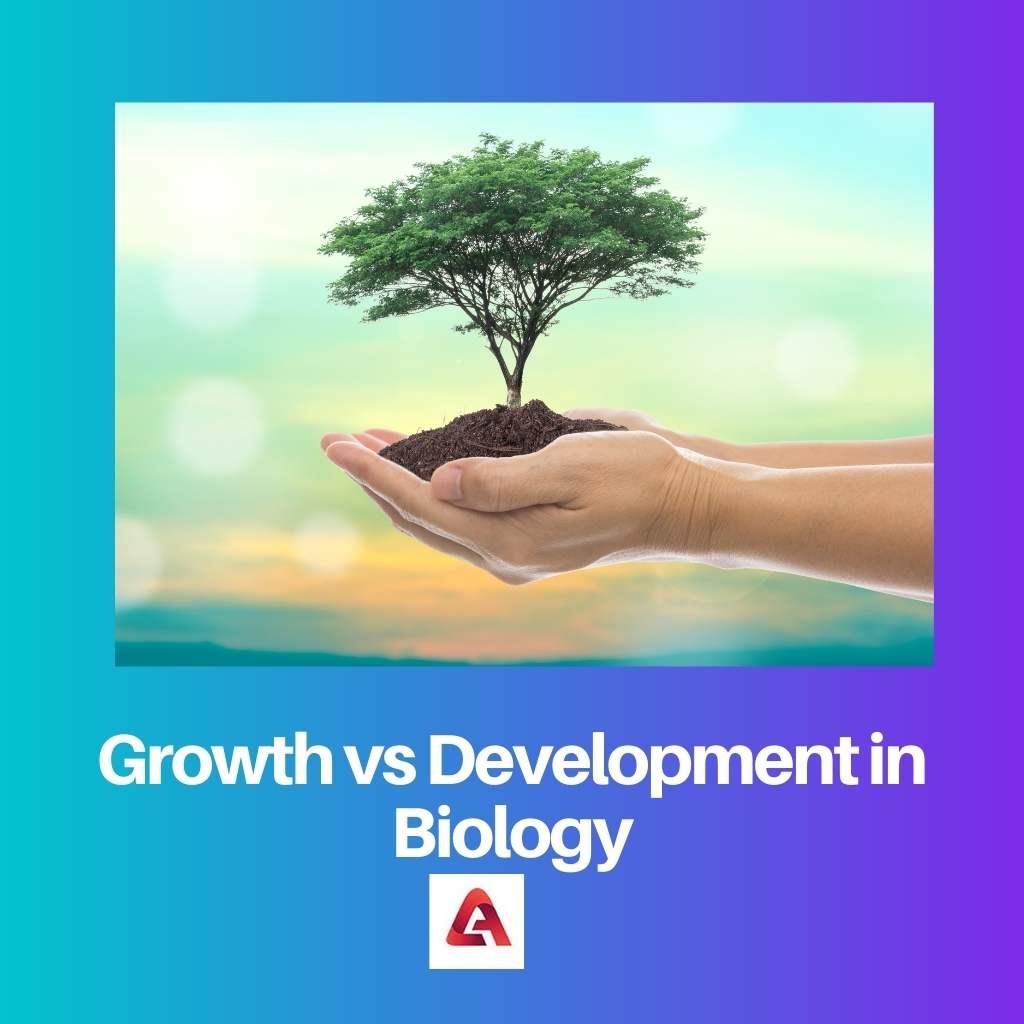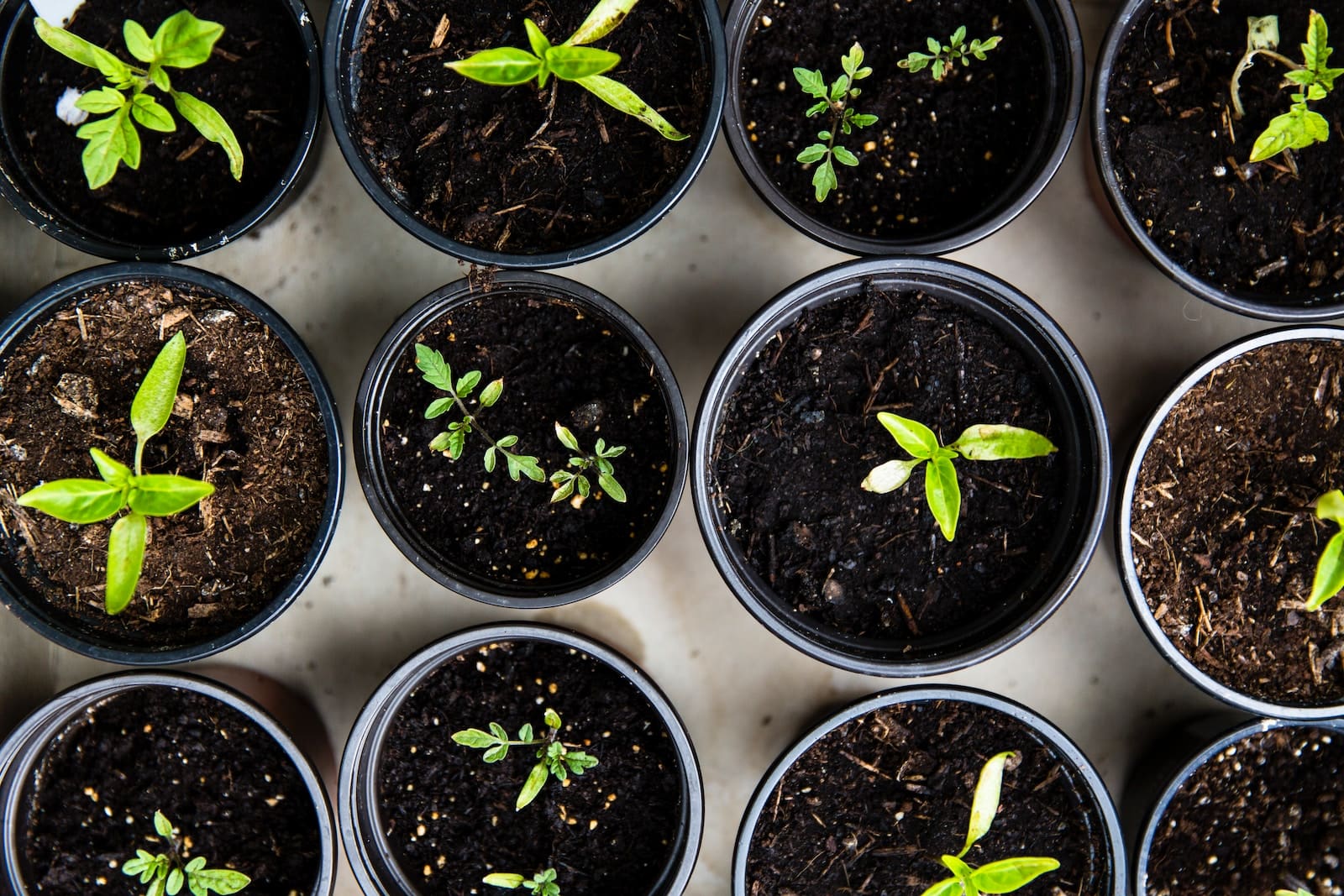In general terms, both growth and development are interchangeably used. However, in the biological study, the two terms have separate meanings, characteristics, and what each of them deals with.
Both growth and development are two completely different processes that occur in the cells of almost all organisms.
Key Takeaways
- Growth refers to the increase in size or mass of an organism, while development refers to the maturation and differentiation process of cells and tissues.
- Growth is a physical process that can be measured quantitatively, while development is a more qualitative process involving structure and function changes.
- Growth is a continuous process throughout an organism’s life, while development is a more complex process influenced by genetic and environmental factors.
Growth vs Development in Biology
The difference between growth and development in biology is that growth is the increase in size and mass due to cellular growth in an organism. On the other hand, development refers to the overall changes in an organism when one cell transforms itself into a multi-cellular structure over a period of time.

Growth in biology is an irreversible process in living beings where the organism increases in size and mass as a part of cellular growth due to mitotic cell division and enlargement.
Growth can be measured in terms of Biomass. Growth in all organisms stops at physical maturity.
Development in biology is also an irreversible process in living beings where the organism changes itself from a single-cell organism into a more complex and matured multicellular organism.
Development is done in stages; the three main development processes are growth, morphogenesis, and differentiation.
Comparison Table
| Parameters of Comparison | Growth | Development |
|---|---|---|
| Stages | Growth doesn’t occur in any specific stage or pattern. | Development occurs in three defined stages. |
| Nature | Quantitative. | Both quantitative and qualitative. |
| Level | Growth occurs at the cellular level. | Development occurs at the organizational level. |
| Time Scale | Growth stops at physical maturity. | Development continues throughout life. |
| Measurement | Growth is measured in terms of Biomass. | Development can only be observed and measured. |
What is Growth in Biology?
Growth in biology is an irreversible increase in the organism’s size which occurs when the cell numbers increase and size enlarges by cell division and its enlargement.
Cell growth is a result of mitotic cell division. The cell wall’s elasticity increases when water content gradually increases, and as a result, the vacuole is also enlarged.
All organisms grow within a specific period only, and the growth stops when the cells and organs reach their maturity.
Growth is measured in terms of Biomass, which measures the mass of the organic material but excludes the cell’s water content.
In the initial stages, growth is a slow process in most organisms. At a certain point of age, growth drastically increases when cells develop the capability of rapidly multiplying.
As the organism grows old, the cells and organs mature and reach their peak of growth. After attaining this maturity, growth slows down and eventually stops after a time period as the cells start dying and decaying.
Growth in organisms is of two types, determinate and indeterminate growth.
Indeterminate growth, the organism grows up to a certain limit and stops growing after a time period, whereas, in indeterminate growth, the organism continuously grows throughout its life.
For example, humans show determinate growth, and plants show indeterminate growth.

What is Development in Biology?
Development in biology is defined as the process in which a particular organism transforms and develops itself from a single-cell structure to a more complex multi-cellular structure.
Development is also an irreversible process. Development transforms the body in two aspects, namely, the organization’s organization and the organism’s function.
Hence, it is both qualitative and quantitative. Unlike growth, Development cannot be measured and is only a subjective interpretation.
There are namely three processes in the order of development in organisms, including growth, morphogenesis, and differentiation.
While growth is an increase in the size and mass of an organism, morphogenesis is the shaping of an organism by embryological processes, including cells, tissues, etc., and the development of the body based on genetic and environmental factors.
As the body develops, cells become more and more complex, which causes them to differentiate for specialized tasks in the body.
Every different organism has its own stages of development. Organisms in their initial days are not capable of many biological processes, but as the cells develop complexity over time, the organism becomes biologically capable of certain stages in life.
For example, in humans, women can get pregnant and give birth only after they reach their puberty stage.
Main Differences Between Growth and Development in Biology
- Growth is only the increase in the size of the organism, whereas development is defined as the overall functional changes in the body.
- Growth stops after a certain age of an organism, whereas development continues for a lifetime.
- Growth is only quantitative in nature, whereas development is both qualitative and quantitative.
- Growth can be measured in terms of biomass, whereas development cannot be measured.
- Growth is independent of development, whereas development depends on growth, as the stages of development include growth.




